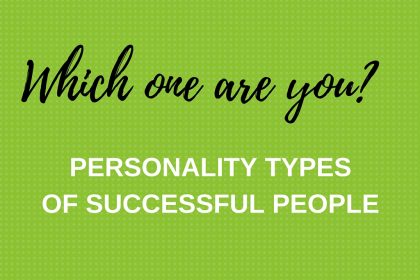Three steps to avoid energy burnout if you’re an introverted entrepreneur
For introverted entrepreneurs, energy management can be the difference between building a thriving business – and exhausting yourself and getting nowhere. We reveal three steps to help you avoid energy burnout.
Tanja Gardner is the founder of Conscious Introvert Success. She recently explained how introversion is an energetic characteristic, not a personality factor, and talked about how managing your energy is a key factor in making marketing introvert-friendly.
Now she explains why it’s easy to become burned out when running your own business – and how you can avoid it if you’re an introverted entrepreneur.
Energy burnout is too common
The bad news is that for most introverts, energy management isn’t as straightforward as it sounds. After all, there are plenty of programmes that show you how to schedule your time or budget your money.
But there aren’t many courses that explain how to manage a limited resource that’s just as important – your energy. That’s probably why energy burnout is so common.
What does energy burnout look like?
If you’re an introvert, you’ve probably hit energy burnout at least once in your life. Most of us have experienced it several times – often without realising that’s what’s happened.
The difficulty is that energy burnout can look very different for different people. For some, it can involve a sense of physical exhaustion, even though you’re sleeping, eating and exercising well. But for others, it can look like any – or all – of the following:
- Feeling irritable and impatient with yourself, your clients and everyone around you.
- A sense of overwhelm, where every request feels like it’s too much to manage.
- An inability to process constructive criticism, where even minor suggestions for improvement sound like “You’re doing it all WRONG!”
- Loss of creativity or being unable to come up with new ideas.
- Losing touch with why you even started your business in the first place.
Obviously, none of these states are ideal when you’re running a business. But how do you avoid getting there? And if you’re already there, how do you get out of it?
Three simple steps to proactive energy management
The key to keeping yourself from burning out is to proactively manage your energy. In effect, that comes down to three simple steps:
- Knowing what drains you.
- Knowing what energises you.
- Using what you know to plan from an energy-aware perspective.
Let’s look at each of those steps in turn.
1) Know what drains you
Just like time management, the first step to managing your energy is getting clear on where you’re currently spending it. What activities in your day-to-day life leave you significantly more drained than you were before you did them? What parts of running your business do you find particularly exhausting?
For many introverts, the most energy-intense activities will be the ones that involve most interaction. That’s because introverts – by definition – are people who need to spend energy on interacting, and then can recharge when they’re alone. But interaction isn’t the only thing that can leave them feeling wrung out.
Remember that introversion is just one factor in your overall psyche. Everyone’s different, so just because an activity takes a lot of energy for someone else doesn’t mean it will do for you (and vice versa).
The key is to know what drains you as an individual. That may involve some mindful observation of how your energy levels respond to different activities. It might even involve actively tracking your energy levels over the course of a week or two and keeping an eye out for patterns.
2) Know what energises you
The second part of the energy management puzzle involves knowing what helps you to replenish your spent energy. What things can you do that leave you feeling refreshed, relaxed and ready to face the world again?
For most introverts, this will involve spending some time alone, but the specifics will vary from person to person. For example, some people find that meditation works really well for them, while for others, it’s nothing more than an exercise in frustration. Some love to go for walks in nature, or create art, or simply kick back and read or listen to music.
Again, the key is to know what works for you as an individual.
3) Use this information to plan your days, weeks and months
Finally, while knowing yourself is essential, it’s not enough unless you actually ACT on what you know. Energy-aware planning is the art of scheduling things in your business – and the rest of your life – around your expected energy levels at any given time.
For example, let’s say you know you’re going to have houseguests during a particular week, and you know that hosting visitors drains you. Being aware of this means that you know your energy levels will be low, so you may want to minimise other energy-intensive activities around the same time. So if you were invited to a networking event that week, you could decline it in favour of a something scheduled for when you’d have more energy.
As a smaller scale example, I know that reading and walking in nature both energise me, so I make a point of regularly incorporating both into my life. Plus, when I know I have a particularly draining event coming up, I ‘bookend’ it with extra recharging activities. That way, I know I’ll have the energy the event will demand available when I need it.
Both are examples of keeping your likely energy levels in mind as you schedule your days, weeks and months.
Over to you!
In this post, I’ve run through the three fundamental steps for proactively managing your energy, so you can avoid energy burnout. I’d love to hear how you find them.
What things are you already aware of that drain you in your business and life? How could you plan your business activities around those things? And what are the things that most energise you? To what extent do you make sure that you actually schedule those activities into your day?
Please let me know in the comments!
Tanja is a deeply introverted (but not even *slightly* shy!) heart-based entrepreneur who helps fellow introverts to grow their businesses without exhausting themselves. Find out more on her website.










